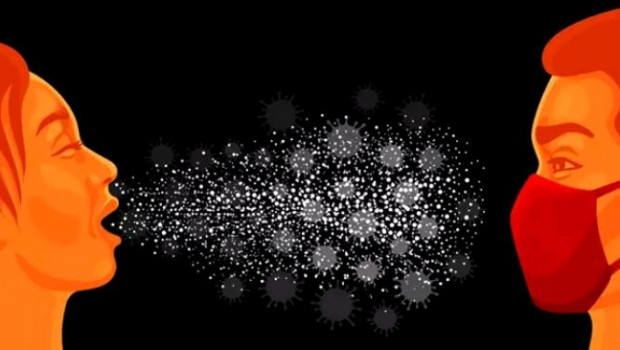November 24, 2020 .
By Francisco Lopez-Muñoz , Camilo José© Cela University and Jose Antonio Guerra Guirao , Complutense University of Madrid .

This therapeutic agent, developed by the pharmaceutical company Eli Lilly, is a monoclonal antibody similar to those that were part of the cocktail of drugs for COVID-19 that was administered to Donald Trump.
What are monoclonal antibodies?
In general, antibodies are large proteins that make up the immune system necessary to identify and neutralize foreign objects in the body, such as bacteria and viruses.
In the specific case of monoclonal antibodies (mAbs, monoclonal antibodies ), these are glycoproteins produced by the clone of a hybrid cell (created from the fusion of a single stem cell of the immune system and a tumor plasma cell) and designed to attack a specific antigen.
Its production is based on the establishment of immortal B lymphocytes modified to produce a specific immunoglobulin. Depending on the level of purity of the immunoglobulin, it can be completely murine, chimeric, humanized or completely human.
Monoclonal antibodies are carefully selected and directed against a specific molecule that plays a key role in a disease process, and they are often used to treat certain diseases such as cancer or rheumatoid arthritis.
What About Neutralizing Antibodies?
Neutralizing antibodies are one of the possible defenses of the immune system against infections.
These antibodies make it possible to counteract and eliminate the effect of invading microorganisms, and their activity is triggered, for example, by proteins located on the surface of viruses, to which they bind to "block" the infection .
In this sense, the scientific community has been studying for some time whether the defensive response through neutralizing antibodies can induce effective and lasting immunity. And, more specifically, it is investigating whether the antibodies generated by patients who have been in contact with the SARS-CoV-2 coronavirus could be used as the basis for new treatments for covid-19 .
However, although neutralizing antibodies are generated when a person suffers an infection and seem to play an important role in the immune response, their specific role in the covid-19 gears has not been fully elucidated.
The studies carried out so far with the SARS-CoV-2 virus indicate that neutralizing antibodies appear about two weeks after beginning the infection, and that their maximum peak of activity would be between weeks 4 and 6. But there are still many unknowns: it has not been confirmed whether all infected patients generate neutralizing antibodies; what factors determine its appearance and activity (age of the patient, severity of infection). Nor if their neutralization levels are always sufficient to confer protection, since these levels are highly variable and are not detected in 10-30% of patients.
The entry of SARS-CoV-2 into cells is initiated by the interaction of the receptor-binding domain (RBD) of the viral Spike (S) glycoprotein with the angiotensin-converting enzyme-2 (ACE2), which acts as a receptor for the virus on the surface of the target cell. The most potent neutralizing mAbs target RBD, and some may act simply by competing with the receptor to bind to protein S.
What is bamlanivimab?

This agent is licensed for the treatment of patients with positive SARS-CoV-2 test results who are 12 years of age or older and weigh at least 40 kilograms and who are at high risk of progressing to severe COVID-19 or hospitalization. . This includes those patients who are 65 years of age or older, or who have certain chronic medical conditions. Bamlanivimab is a drug that must be applied intravenously, so patients must go to a hospital for it to be administered.
While the safety and efficacy of this investigational therapy continues to be evaluated, clinical trials have confirmed that bamlanivimab, compared to placebo, reduces covid-19-related hospitalizations or emergency room visits in patients at high risk of disease progression, within 28 days after starting treatment . For this reason, its use is recommended in the early stages of the disease, preferably in the first 10 days after the onset of symptoms of the disease.
However, Bamlanivimab is not authorized in the case of patients hospitalized for COVID-19 or who require oxygen therapy, since a significant benefit of treatment with this monoclonal antibody has not been demonstrated in hospitalized patients with COVID-19. And indeed, mAbs, such as bamlanivimab, may be associated with worse clinical outcomes when administered to hospitalized patients with COVID-19 who require high flow oxygen or mechanical ventilation.
With regard to the safety profile, the adverse effects of mAbs , in general, can be grouped into two different types: those derived from the action of the antibody, such as opportunistic infections, common infections or development of autoimmune phenomena; and those derived from the administration of proteins: anaphylactic reactions, cytokine release syndrome and development of antibodies. In the specific case of bamlanivimab, the adverse reactions most frequently reported to the FDA have been nausea, dizziness, headache, pruritus, non-severe immediate hypersensitivity, diarrhea, and vomiting.
In Conclusion

However, the pharmaceutical company responsible for the development, Eli Lilly, must commit to providing more clinical data to supplement the information on the efficacy and safety of the medicine, as the results of ongoing clinical trials are obtained. And only when these data are positive would full and definitive authorization be granted, while, otherwise, the drug would have to be withdrawn from the market.
Bamlanivimab opens a new and promising window in the therapy of covid-19, therefore, unlike other drugs available on the market for other diseases and which have shown some efficacy in this pathology ( Remdesivir , Plitidepsin , Dexamethasone , Hydroxychloroquine , etc.), this is the first medicine specifically developed and authorized for the treatment of covid-19 patients.



